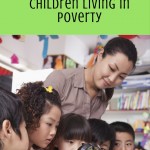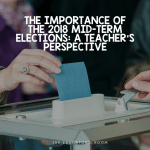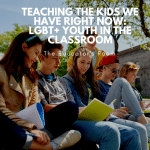Every year, students cross into my classroom, and I spend a year educating them on the topics we are told to instruct. We spend time learning their names, their stories, and their lives. As the year progresses, we assist their education with interventions and different strategies for academic success, but how often are those strategies focused on students’ self-efficacy or their view of themselves?
Over my ten years as an educator, I noticed this was never the focus. Sure, occasionally, we would learn a new strategy, like “dropping the rope” or “mindfulness” or other strategies, and maybe it is just the districts I worked for, but these were all temporary pieces of training that never went as far as they could. So, this became the focus of my dissertation, as I strongly believe student’s success lies within themselves.
When I say success lies within oneself, that is not to discount teachers, family, and a student’s support system, but we must understand a student cannot maintain success if they cannot see their own achievements. And to me, that is what PBIS has always lacked, the bridging to academic success rather than praise for good choices. So how do we bridge that gap?
Albert Bandura studied social cognitive theory in the 1960s, and in his studies, he discussed that the connection between oneself, behavior, and environmental factors could determine one’s success. Observing one’s environment, reflecting on one’s decisions, receiving reinforcement for choices, and demonstrating self-control and self-efficacy can lead to choices that promote positive interactions. How one perceives their own thoughts and emotions can indicate how one reacts in the social environment. Understanding Bandura’s theory of SCT connects to student learning in many ways.
According to Bandura, human agency is the intentional decision that prompts behavioral change and investment in learning. As a human agency investing in education, goal setting, motivation, and self-efficacy are major contributors to the decisions made regarding learning. Teaching students self-regulation and reflection while improving their self-efficacy is the key to bringing students back who have drifted off course. Students who have experienced failure or retention are more likely to avoid setting goals or challenging themselves, which pushes the need further for educators to help students create obtainable goals and 21 challenges, continuing to set new goals as each previous goal has been accomplished, allowing students to build relationships with teachers, feel more invested in their education, and experience more positive self-efficacy in themselves.
Students have to have an internal drive for success and deem the efforts needed to be successful worth investing their time and energy. When students lack confidence due to limited self-efficacy, they may experience a disconnection from peers, teachers, and institutions, resulting in poor academic performance. In addition to experiencing a disconnection from their surroundings, students may also begin to limit the goals they set for themselves, resulting in limited to no motivation towards academic success.
While students may not plan their current motivation around future goals, future goals can impact the student’s current motivational level, whether positive or negative. If a student does not have positive self-efficacy, then their motivation is limited, goal setting is limited, and as a result, their decision-making skills may be limited, resulting in negative impacts on their educational success (Burke, 2012). On the other hand, students who experience success after failure are more likely to start goal setting, creating new challenges to reach, and continuing to create new goals as they experience future successes (Bandura, 1991; Burke, 2012)
So, what can we do to help this? By helping our students reflect on their successes with specific feedback and helping students learn to goal set, we can help students gain stronger self-efficacy and responsibility for themselves. By helping students take failures and turning them into successes, we can help students gain confidence. So what can we offer students to help with this?
- Goal Setting and Journal Reflection– have students reflect on successes and areas of improvement per week and set weekly goals to complete their goals.
- Provide feedback– if students make mistakes, rather than providing the answer, give them a chance to find mistakes for themselves and reflect on the decisions that lead them to the wrong choices (both academic and behaviorally).
- Have accountability buddies– have students work with a friend or classmate who can help them keep goals to stay motivated and celebrate their successes.
Many different avenues exist to help students, but we must, as educators, be open to finding ways to help students gain confidence in themselves, as even though we believe in them, they need to believe in themselves.






